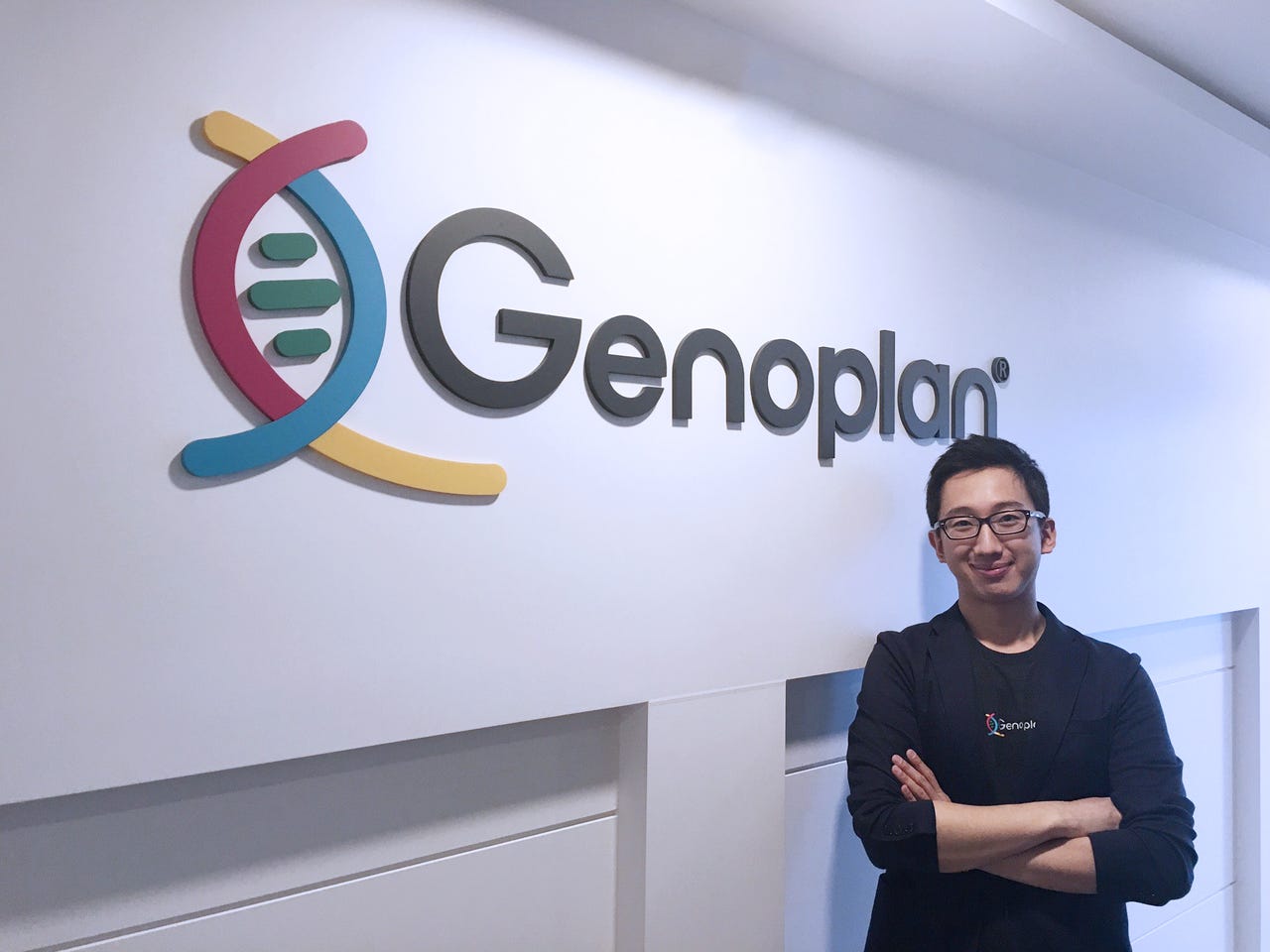This Korean startup wants your saliva

Fitness is a big trend in IT, and the fast access and ubiquity to information that smartphones, smartwatches and wristbands offer will likely only make traditional services -- such as blood testing and check-ups -- more accessible, sophisticated and more personal, catered to your need.

Genoplan founder and CEO Brian Kang.
Personal health services are a big trend in the US, with companies such as personal genomics firm 23andMe, founded by entrepreneur Anne Wojcicki, ex-wife of Google founder Sergei Brin, and Counsyl, which offers DNA screening for couples planning to have a child
For Genoplan CEO and founder Brian Kang, who studied genome in college with a background as a researcher in Samsung, Asia was missing out in a whole field of knowledge and services that can be made easy for consumers.
"23andMe has over 1 million members. A recent statistic says that parents of around 5 percent of new born infants in US per year has gone through some kind of DNA screening beforehand," says Kang. "Just think of the value the data accumulated from those kinds of services can contribute to various fields of genome and disease studies."
Latest news on Asia
"Research is of course very important, but we want to think about how to make marketable services and products that can help people," he added.
Genoplan offers a package called Genoplan Fit, currently supplied to partnered hospitals later to be directly sold from the company starting in June, where a valve is given customers. They can put in their saliva and mail it to the firm for DNA analysis. After a going through its automated commercial lab in Japan, customers get a full health report via the firm's app.
"We check your probability of obesity, likelihood of Yo-yo effect and metabolism rate," says Kang. "We send a full report, and offer tips on how to set your daily routine, what to eat and how to exercise, best fitted for your need, so that you can lose weight and maintain your fitness after diet."
"Using saliva is the big trend in DNA screening. Blood is inconvenient and hair requires large sample," said the CEO.
Kang could not change the shape of the valve in the box -- because it is an industry standard. But he was keenly involved in design of the digital report and the box for the Genoplan Fit package, with the goal to make it attractive, accessible, and friendly to customers.
"I really want the consumer to feel when they subscriber to our service and get the box that this is not a scary thing. A lot of researches and resulting services just focus on the result and effect. But making and marketing these services friendly to customers is I think just as important," he said.
Collecting data in Asia
Kang is in talks with the hospitals, cosmetic companies, and health training industry. Under the same Genoplan product brand, the company plans to start a service that suggests the right cosmetics for consumers after DNA testing.
To cater to that expansion plan, out of 19 current employees, half is in R&D, but the other half is marketing. Genoplan even has a fitness trainer. It has two labs; the one in Korea is strictly for research and the other in Japan is supplying samples to a client there.
After Japan, its next goal is Southeast Asia and greater China.
"The West already has well-placed services and big data on the population, used in research. They lack in data from Asia. So we want to expand in Asia to collect Asia genome data for development of cancer treatment, the right cosmetics, or obesity treatments for the Asian population."
The digital report given to customers is very open about the kind of test is conducted and why they reached a certain conclusion, more so than counterparts in the market right now, says the CEO.
"Most similar companies are not completely open about the type of test and analysis technique they applied, because I guess they think its a company secret. But we want to be open as possible in that, so consumers can say 'I'll try a different test somewhere else' and generally make a more sound decision," says Kang.
The report from Genoplan Fit fully acknowledges the research papers it cited, and training tips are written by certified experts.
"The extreme in weight loss is liposuction, but many of them gain their weight again afterwards. We want to offer a sustained and healthy way for people to stay fit," says the CEO. "We want to help you discover yourself and maintain our health and beauty."